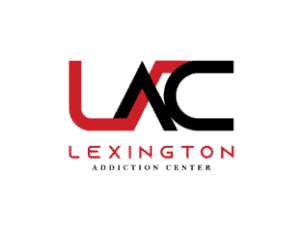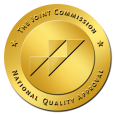Common Addiction Recovery Questions and Answers
Welcome to Common Addiction Recovery Questions and Answers, your quick-reference guide to the toughest topics people ask when alcohol or drug use starts running the show. Our goal is to deliver clear, stigma-free information so you or someone you love can make decisions without fear or guesswork.
Every answer reflects real-world practices at Lexington Addiction Center, an outpatient facility that offers Partial Hospitalization, Intensive Outpatient, Outpatient therapy, and Medication-Assisted Treatment.
No matter where you are on the recovery path, you’ll find practical insights that match the flexible, community-based care we provide right here in Central Kentucky.
Key Points
- What’s the first step toward treatment? Call for a no-cost assessment and benefits check.
- How long does outpatient rehab typically last? Four to twelve weeks, depending on the level of care.
- Can Medication-Assisted Treatment stop cravings? FDA-approved meds reduce cravings and ease withdrawal safely.
- Is relapse a guaranteed part of recovery? No—many people maintain lifelong sobriety, though plans exist if slips occur.
- Does insurance cover therapy sessions? Most commercial plans pay a portion; we confirm specifics before you start.
- Are virtual appointments available? Select individual and group sessions run via secure telehealth.
- Who can join family therapy? Parents, spouses, or other support persons may attend with clinician approval.
What Is Considered Addiction?
According to the American Society of Addiction Medicine (ASAM), addiction is a chronic, relapsing medical condition marked by compulsive substance use, loss of control, continued use despite harm, and intense cravings.
Think of substance involvement on a spectrum: use (occasional, controlled consumption), misuse (risky behaviors or larger doses than intended), and substance use disorder (a diagnosable condition defined by specific clinical criteria).
In plain language, a person crosses the line into addiction when the brain’s reward circuitry is hijacked. Decisions revolve around getting and using the substance, even as health, work, and relationships suffer.
Understanding that addiction is medical and not moral helps remove blame and opens the door to evidence-based care. For more on this topic, see our FAQ about addiction & substance use, where we unpack tolerance, withdrawal, and why willpower alone is rarely enough to break the cycle.
How Do Addiction and Dependence Differ?
Addiction is the mental tug-of-war—you can’t stop thinking about getting that next drink or pill, even though you know it’s hurting you. Dependence is your body’s side of the story; it’s grown so used to the substance that it needs more to feel “normal,” and it throws a fit (withdrawal) when the supply runs low.
You can be dependent on prescription opioids for chronic pain yet not crave them in the addictive sense; conversely, someone addicted to alcohol may obsess over their next drink even before withdrawal sets in.
Most substances linked to treatment, including opioids, alcohol, and benzodiazepines, produce both states over time, but recognizing the split matters: detox targets dependence, while ongoing therapy addresses addiction’s mental grip.
For anyone browsing a drug addiction FAQ, the takeaway is clear: ending substance use means treating both the body and the mind.
Is Addiction Hereditary—or Environmental?
Scientists estimate that genetics account for 40–60 percent of vulnerability to substance use disorders, yet the environment shapes how those genes are expressed.
Genetic Risk Factors
- Family history of alcohol or drug problems
- Inherited traits like impulsivity or novelty seeking
- Brain-chemistry variations affecting reward pathways
Environmental Risk Factors
- Early exposure to parental drinking or drug use
- High-stress settings: poverty, trauma, or chronic conflict
- Easy access to alcohol, opioids, or stimulants
- Peer groups that normalize heavy use
Because both forces interact, prevention starts early: model responsible drinking, teach coping skills, and limit access to high-risk substances. These strategies appear again and again in alcohol addiction FAQs and any credible addiction treatment FAQ—proof that genes load the gun, but environment often pulls the trigger.
Can Someone Recover Without Professional Help?
A small percentage of people achieve lasting sobriety on sheer willpower, but research shows structured care quadruples long-term success rates. Evidence-based therapy addresses cravings and thought patterns; Medication-Assisted Treatment stabilizes brain chemistry; peer groups supply accountability.
At Lexington Addiction Center’s outpatient programs, clients meet multiple times a week, blending CBT or DBT with FDA-approved medications and 12-Step immersion. This multidisciplinary approach cuts relapse risk dramatically compared with “white-knuckling” alone.
Even if you begin recovery on your own, professional guidance fills knowledge gaps, especially during early withdrawal or emotional upheaval, making the climb safer, faster, and far more sustainable.

What Is Dual Diagnosis (Co-Occurring Disorder)?
Dual diagnosis means a person meets clinical criteria for both a mental health condition and a substance use disorder at the same time. Typical pairings include major depression with opioid misuse, generalized anxiety with alcohol dependence, and post-traumatic stress disorder (PTSD) alongside benzodiazepine overuse.
Treating only one half of the equation rarely works because symptoms feed on each other: anxiety can spark cravings; heavy drinking can deepen depression.
Lexington Addiction Center uses integrated therapy teams—addiction counselors, psychiatric prescribers, and peer-support specialists—so medication, skills training, and relapse-prevention plans address both conditions in a single, coordinated roadmap.
In short, successful recovery depends on whole-person care, a point that surfaces in almost all FAQs about addiction and modern treatment standards.
How Can I Tell If a Loved One Is Addicted?
Start by looking for three clusters of red flags—behavioral, physical, and social.
Behavioral: secretive routines, unexplained absences, or risky choices to obtain alcohol or drugs.
Physical: bloodshot eyes, chronic sniffles, sudden weight change, or tremors.
Social: withdrawing from family events, dropping hobbies, missing work or school, and frequent money crises.
One or two signs may have other explanations, but a pattern across all three areas warrants a professional assessment. Lexington Addiction Center offers no-cost phone screenings that clarify whether outpatient care, detox referral, or a simple educational consult is the best option.
If you’re scanning an addiction recovery FAQ for guidance, remember that early intervention is kinder and usually more effective than waiting for a crisis.
What Is Medication-Assisted Treatment (MAT)?
Medication-Assisted Treatment combines FDA-approved drugs with counseling to stabilize brain chemistry while you learn healthier coping skills.
For opioid addiction, buprenorphine or naltrexone reduces cravings and blocks euphoric effects; for alcohol dependence, medications like acamprosate or extended-release naltrexone help curb relapse risk.
At Lexington Addiction Center, MAT is delivered inside our Partial Hospitalization, Intensive Outpatient, and standard Outpatient programs, not in an inpatient ward, so you can receive medical oversight and therapy without leaving home or work for weeks at a time.
Regular check-ins with prescribers fine-tune dosing, while CBT, DBT, and 12-Step integration tackle the psychological side of dependence. The result is a balanced, evidence-based pathway that boosts retention and long-term sobriety rates.
What Is Withdrawal, and Why Is Detox Important?
When regular alcohol or drug use suddenly stops, the body rebels with withdrawal—shaking, sweating, nausea, insomnia, even dangerous spikes in heart rate or blood pressure.
A medically supervised detox keeps those symptoms in check, using monitoring, IV fluids, and, when necessary, taper medications. Lexington Addiction Center does not operate 24-hour detox beds on-site; instead, we coordinate admissions to trusted medical partners and stay in daily contact until you’re stable enough for outpatient care.
This hand-in-glove approach answers one of the most frequently asked questions (FAQ) on addiction treatment: “Is detox really necessary?”
Yes—because clearing the substance safely is the doorway to effective therapy, not a standalone cure.
How Long Does Withdrawal Last?
Timeline depends on the substance, dose, and individual health.
Alcohol and short-acting opioids peak within 24–72 hours and ease by day 7, while benzodiazepines and long-acting opioids can produce milder but longer waves of discomfort for 10–14 days.
After the acute phase, some people experience post-acute withdrawal—mood swings, low energy, or sleep issues that come and go for weeks.
Because early symptoms can turn serious quickly, stepping into professional care before day one—or immediately after a relapse—keeps complications from spiraling and links you to follow-up treatment the moment detox ends.
How Is Addiction Treated After Detox?
Once you’re medically stable, Lexington Addiction Center offers three outpatient tiers:
- Partial Hospitalization Program—full-day therapy five times a week, ideal for early stabilization.
- Intensive Outpatient Program—three or four half-day or evening sessions, balancing high-touch care with work or school.
- Outpatient Program—weekly individual counseling and relapse-prevention groups for long-term maintenance.
Across all tracks, evidence-based therapies drive progress: Cognitive Behavioral Therapy rewires thought patterns; Dialectical Behavior Therapy teaches emotion regulation; family sessions rebuild trust and healthy boundaries.
Holistic add-ons—mindfulness, yoga, and life-skills workshops—round out the plan, ensuring treatment targets every dimension of recovery: biological, psychological, and social.
Is Relapse a Normal Part of Recovery?
In any addiction treatment FAQ, you’ll see that setbacks can happen, but context matters. A lapse is a brief slip (one drink, one pill) followed by renewed commitment; a relapse is a sustained return to old patterns. Neither means failure; they signal that your coping plan needs to be adjusted.
Lexington Addiction Center builds relapse-prevention into every treatment level: craving logs, high-risk-situation rehearsals, and an emergency contact tree. If a lapse does occur, your therapist can trigger a rapid boost in support—stepping you from standard Outpatient into Intensive Outpatient or even the full-day Partial Hospitalization Program for extra structure.
The goal is quick course correction, minimizing harm, and reinforcing the skills that keep recovery moving forward.

How Can I Help a Loved One Enter Treatment?
Start with a quiet, private chat that comes from a place of genuine concern rather than blame. Point to real-life signs—like missed work or sudden mood swings—so the conversation feels grounded, not accusatory.
Have solutions ready: suggest Lexington Addiction Center’s free phone assessment or share contacts for reputable medical-detox partners if withdrawal looks risky. If your loved one refuses help, a licensed interventionist can step in to facilitate communication and clarify what’s at stake.
Throughout the process, stay caring but firm: set healthy boundaries, skip financial rescue missions, and keep reminding them that outpatient care lets them maintain work or school while getting therapy and Medication-Assisted Treatment.
Steady support and clear options often turn reluctance into willingness.
Still Have Questions About Addiction & Recovery?
Our guide to Common Addiction Recovery Questions and Answers is only the beginning. If you need more clarity, the team at Lexington Addiction Center is ready to talk—no pressure, just honest guidance. Call or reach out on any page to connect with an admissions specialist right now. Help is one call or one click away, and your personalized path to healing can start today.
FAQ: Common Addiction Questions
Addiction is a chronic condition in which compulsive substance use persists despite harmful consequences. It develops over time as the brain and body gradually adapt to the presence of drugs or alcohol, leading to physical dependence, cravings, and changes in the brain’s reward circuitry. What may begin as casual or recreational use can evolve into repeated reliance on substances to cope with stress, emotional pain, or environmental triggers. Because substances can produce intense feelings of relief, pleasure, or escape, the brain starts to prioritize drug-seeking behavior over natural rewards like relationships, hobbies, or responsibilities.
As addiction progresses, tolerance often builds — meaning a person needs increasing amounts of a substance to achieve the same effect. At the same time, the brain’s natural ability to regulate mood and motivation weakens, making emotional balance harder to achieve without the drug. This creates a cycle where use becomes both a habit and a compulsion, driven not just by choice but by lasting changes in neural pathways that influence decision-making and impulse control.
Addiction is not a moral failing or lack of willpower. It is a complex interplay of biology, environment, emotional experience, and behavior. Because it affects the brain’s control systems, recovery usually requires structured support, coping strategy development, and emotional regulation skills rather than simple cessation of use alone.
Addiction symptoms vary by substance and individual, but there are several common patterns that indicate a problem. One hallmark sign is loss of control over use — needing more of a substance than intended, using more often than planned, or being unable to cut down despite wanting to. People with addiction often experience strong cravings that feel hard to resist and prioritize substance use even when it disrupts work, relationships, health, or responsibilities.
Another common sign is increased tolerance, where the body requires higher doses to achieve the same effect, and withdrawal symptoms when use is reduced or stopped. These physical responses can include anxiety, irritability, nausea, sweating, tremors, insomnia, or mood swings depending on the substance.
Behaviorally, people may avoid social situations where substances aren’t available, hide their use, make excuses, or experience conflict with loved ones related to substance use. Emotional symptoms — such as guilt, shame, mood instability, or emotional numbness — also often accompany addiction.
Together, these patterns reflect a shift from occasional use to a compulsive cycle where the brain and body have adapted to expect the substance, and life functioning becomes increasingly shaped by substance-seeking rather than balanced living.
Quitting on one’s own is often much harder than it seems because addiction changes both brain chemistry and behavior patterns in ways that undermine purely motivational efforts. Over time, repeated substance use alters neural pathways involved in reward, stress response, and impulse control. These changes make cravings powerful, persistent, and biologically driven — not simply a matter of willpower. Even when someone intellectually wants to stop using, the brain’s adapted reward and stress systems continue to drive intense urges and emotional discomfort that make staying quit difficult without support.
Withdrawal symptoms also play a major role. Physical and emotional withdrawal can be uncomfortable, distressing, and in some cases medically dangerous. Without monitoring, discomfort often leads people to resume use to relieve symptoms, creating a cycle that reinforces dependence.
Finally, addiction affects patterns of thinking and emotional regulation. Someone may believe they can quit “whenever they want,” yet find themselves repeatedly returning to use because emotional triggers — stress, trauma reminders, social cues, or emotional discomfort — feel overwhelming without new coping skills in place. Structured treatment provides tools that support both the neurological and psychological aspects of recovery, making sustained change more attainable than trying to quit alone without planning, support, or coping strategies.
Cravings are intense urges to use a substance, and they happen because the brain’s reward and memory systems have been conditioned to associate certain emotions, places, people, or sensations with relief or pleasure from substance use. When someone repeatedly uses a drug or alcohol to cope with stress or emotional discomfort, the brain begins to link those internal states with the substance as a source of relief. Over time, these associations become automatic.
Cravings are not just psychological urges — they involve physiological signals in the brain that feel strong and compelling. When someone encounters a trigger — such as stress, a familiar environment, or even a thought — the brain releases neural messages that push toward substance use, much like hunger signals push toward food. The difference is that the brain perceives substance use as rewarding or comforting because of past reinforcement.
These neural associations are why cravings can feel sudden, intense, and hard to resist even when someone is fully committed to quitting. Cravings typically peak early in withdrawal or during stressful situations but diminish over time with consistent practice of coping skills and lifestyle changes that provide alternative sources of emotional regulation. Understanding that cravings are a product of learned neural patterns — not personal weakness — helps individuals approach them with patience and intentional strategies rather than judgment.
Triggers are situations, emotions, thoughts, or environmental cues that evoke a strong urge to use substances because the brain has learned to associate those cues with past use. They can be external — such as being around certain people, places, or objects — or internal, such as feelings of stress, loneliness, sadness, or fatigue. Triggers activate memory networks and emotional responses that have been conditioned over time, making the brain interpret certain states as reasons to use again.
Triggers play a central role in relapse because even when someone has stopped using, exposure to these cues can create intense cravings and emotional discomfort that feel hard to manage without substance use. Many people experience sudden urges when encountering reminders of past use, stressors that once led to using as relief, or emotional states that lack healthy coping alternatives.
Relapse prevention involves understanding and anticipating triggers, then building specific strategies to respond without using. These might include grounding techniques, mindfulness, reaching out to support, practicing alternative behaviors, or avoiding certain high-risk situations temporarily. By recognizing triggers and preparing for them, individuals can reduce their power and respond with intentional, adaptive choices rather than falling back into old patterns.
Recovery from addiction is highly individual and there is no universal timeline because each person’s history, biology, support system, and coping skills differ. For some, meaningful improvements in cravings, emotional regulation, and daily functioning begin within weeks of consistent treatment. For others, especially those with long-term use, co-occurring mental health concerns, or complex life stressors, recovery unfolds over months or years.
It’s helpful to think of recovery not as a destination with a fixed end point, but as a process of growth and skill building. The early stages often focus on stabilization — reducing cravings, managing withdrawal if present, and introducing new coping skills. Middle phases of recovery deepen emotional insight, build resilience, and strengthen routines that support wellbeing. Long-term recovery involves ongoing maintenance of healthy habits, support systems, and intentional responses to life’s challenges.
Because the brain and behavior patterns adapt over time, sustained change requires ongoing effort. Many people continue with structured support, peer groups, or therapy even after achieving initial stability. Rather than marking recovery by a specific number of days, success is often defined by consistent engagement with healthy behaviors, improved quality of life, and the ability to navigate stress without returning to substances.
Addiction is generally considered a chronic condition, meaning it can’t be “cured” in the sense of erasing its influence permanently, but it can certainly be effectively managed with appropriate treatment, support, and lifestyle strategies. Like other chronic health conditions — such as diabetes or hypertension — addiction involves physiological, psychological, and behavioral components that require ongoing attention. Treatment helps individuals build the skills and routines that reduce symptoms, prevent relapse, and strengthen resilience over time.
For many people, sustained recovery means living a fulfilling, balanced life with minimal interference from cravings or compulsive behaviors. They may still encounter triggers or stressors, but they have developed coping strategies that prevent those moments from leading to harmful use. Successful management also includes understanding emotional patterns, maintaining supportive relationships, and engaging in meaningful activities that reinforce a sense of purpose and stability.
While the term “cure” implies a one-time solution, recovery from addiction is better framed as ongoing growth. With continued care, support, and healthy habits, individuals can achieve long-term stability, improved quality of life, and a sense of control over their choices — even if occasional challenges still arise.
Starting addiction treatment begins with acknowledging the problem and reaching out for help, which is often the hardest step but a powerful shifting point. Many people begin by contacting a treatment provider, clinician, or recovery support service for a comprehensive assessment. During this initial evaluation, clinicians gather information about substance use history, emotional health, medical background, and individual goals. This helps determine which level of care — such as outpatient therapy, residential treatment, or medication-assisted treatment — is most appropriate.
Once the assessment is complete, a personalized treatment plan is developed. This plan typically includes therapeutic approaches that match the person’s needs, such as individual counseling, group therapy, relapse prevention training, family involvement, and coping skills development. If there are co-occurring mental health concerns, those are integrated into the plan rather than treated separately.
Support doesn’t end after intake; clinicians and support teams regularly monitor progress, adjust strategies, and provide encouragement. Many people also benefit from building a support network, whether through peers, loved ones, or recovery groups, which reinforces accountability and shared understanding.
Taking the first step — talking to someone, scheduling an appointment, or even asking questions — begins the recovery journey. Once someone makes that choice, structured support and compassionate care create a path toward healthier functioning, reduced symptoms, and lasting growth.
Educational and resource content provided on Lexington Addiction Center pages is intended to support understanding of addiction and recovery. This content is not a substitute for professional medical care.
Third-party references are informational only and do not imply endorsement.
In medical emergencies, call 911 immediately.
Treatment decisions should always involve licensed professionals. Insurance coverage must be verified directly.
Use of this website does not establish a provider-patient relationship.
 | Medically Reviewed By: Board-Certified Psychiatrist and Addictionologist |
 | Clinically Reviewed By: Board Certified Clinical Social Worker |

Contact Us Today

Addiction and co-occurring disorders don’t have to control your life. Lexington Addiction Center is waiting with open arms to give you the tools necessary for lasting change. Reach out to us today to learn more.
Yes, Your Insurance Covers Detox and Rehab Treatment
Get Family Support Now
Supporting Families Through Recovery
We understand addiction affects the whole family. Our comprehensive family program helps rebuild trust and restore relationships.
Weekly Family Therapy Sessions
Educational Workshops
Support Groups
Communication Skills Training
Get Family Support Now



 859-681-7823
859-681-7823
